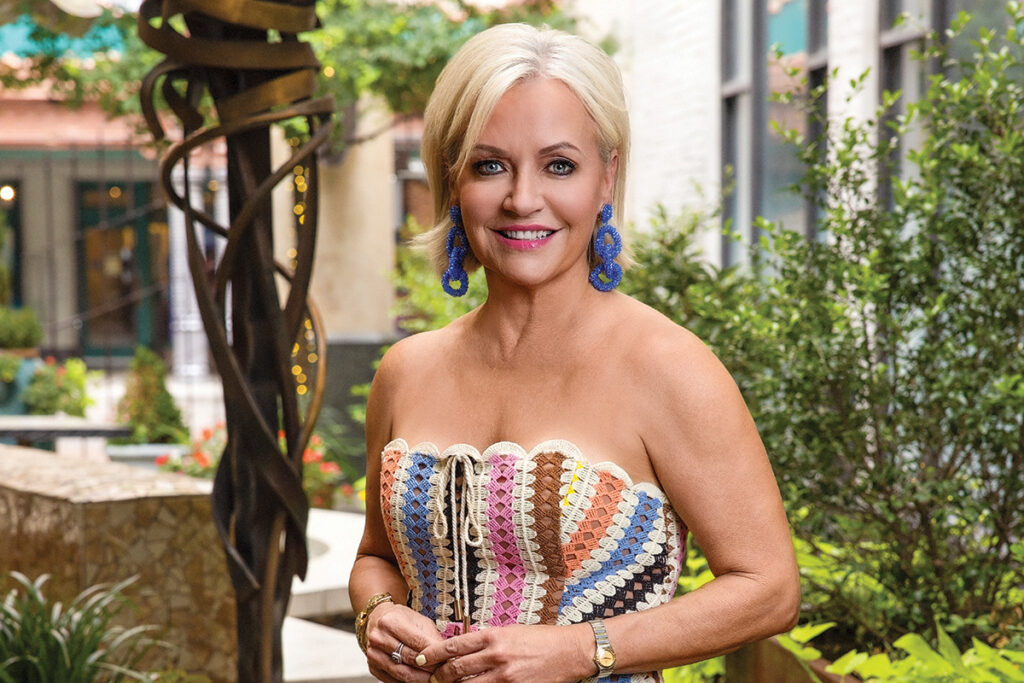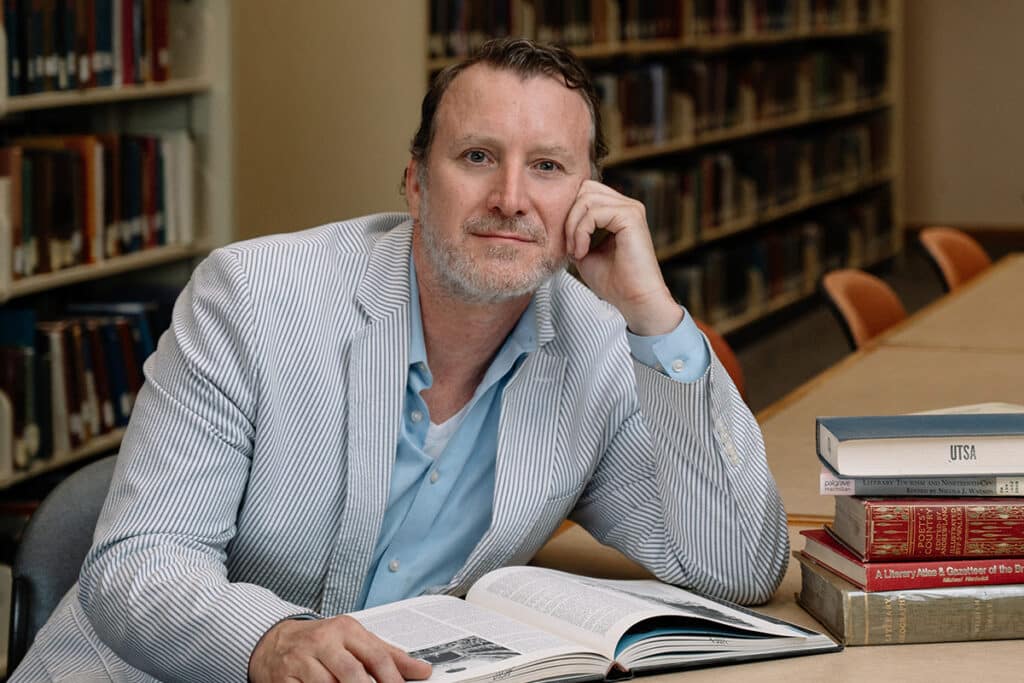it’s a chilly November night in San Antonio, but inside Earl Abel’s Restaurant the atmosphere is warm and jovial. I have joined two married couples, Paul and Phyllis Silber and their good friends John and Amelie Shaw, for dinner. Tonight’s special is fried oysters, and we all order them. Pretty soon, conversation is flowing smoothly — from who did what during the day to politics, police, stolen trucks, health foods, friendship and marriage.
That last subject is really why I am here. Paul and Phyllis have been married 57 years, John and Amelie 58. These folks know a thing or two about enduring love, and I am sharing this cozy meal with them to talk about these matters. With 50 percent of marriages ending in divorce these days, we wanted to know what makes some relationships last — for better or for worse, in sickness and in health . . . till death do us part.Predictably, when the subject comes up, the men are a bit uncomfortable. Former warriors both of them, community stalwarts and seasoned professionals — Paul is an engineer, John a lawyer — they are nevertheless a little tongue-tied when it comes to revealing personal thoughts. So when I ask what’s the best thing about being married for so long, both gentlemen resort first to humor.
Their more relaxed wives warn them that I might take them seriously and publish what they say. “The friendship and the relationship get better and better,” John says finally. But Paul cannot resist another tongue-in-cheek quip: “The best thing is that my wife forgets what she’s mad at me about.”
We all laugh, but I sense that Phyllis is slightly annoyed with his answer. It passes quickly, though. She is used to his jokes. Besides, what’s a touch of sarcasm after a lifetime of devotion and togetherness?
PAUL AND PHYLLIS SILBERI
First met the Silbers in their cozy condo a week or so prior to the Earl Abel’s dinner. They sat together on their living room couch under a huge mounted buck head on the wall, one of Paul’s many hunting trophies. That’s where our conversations about love and marriage began. And we started at the beginning.Paul and Phyllis fell in love at a dance at Trinity University soon after Paul returned from the Philippines, where he had spent several months fighting during World War II. Wounded in action, he would eventually be awarded the Purple Heart. When he showed up for the dance, he was “just skin and bones,” recalls Phyllis, but rather energetic.
“He asked me to dance and would not let go of me even though I had come to the dance with another date. And that was that,” she says, still amused at the memory. “Afterwards we dated for about nine months. He lived close to Trinity, so he would come and take me for a cup of coffee or something between classes. Sometimes I missed a class. I wasn’t ready to get married, but he was quite persuasive.”
The couple wed in October 1946 at the tender age of 21, and neither has ever looked back. Following Paul’s graduation from Texas A/M with a degree in mechanical engineering, they moved back to this area, where Paul worked for his father’s architectural firm for several years before opening his own engineering business in 1957. Phyllis helped with office work and took care of daughters Paulette and Susanne. There were lean times and good times, as they worked to build the business, rear their children, stay involved in the community and fulfill their dreams.
Today, their daughters are middle-aged women — Paulette, a widow, is a CPA here; Susanne is the wife of the current United States ambassador to Australia — and even their grandchildren have grown to adulthood. But Paul and Phyllis are still holding hands. At least they were for a time while talking to me, while their dog Lil’ Bit lay asleep between them.
Did they keep romance alive in their lives? Paul pondered the question for a minute.” A relationship that lasts is more fundamental than romance,” he says. “Our commitment is a commitment without any qualifications or restrictions. In our generation, commitment to the family involved responsibility, and we didn’t question it.”
But a lasting marriage and a good marriage are not the same thing. In a good marriage you have lots of opportunities to observe your partner’s commitment to you. Phyllis was always at her best when things were difficult. Adversity brings out the best in people in a good marriage.”
As an example, he recalled his young wife’s willingness to leave city life behind to live on a farm near Cibolo. Farming had been his dream, and even though it was tough for her, she helped him realize it. At least for a while. After a few years, however, the dream proved to be just that. Paul could not leave his job in town to devote full time to farming, and the children needed to go to school. With some regret, the family said goodbye to Cibolo and moved back to San Antonio. Phyllis also supported her husband in launching his business, and offered a helping hand on and off for many years afterwards. In return, he encouraged her to pursue whatever project was close to her heart.
When conflicts arose, as they invariably do, the Silbers handled them by distancing themselves from each other for a while. That was especially true when Paul took on a business partner whom his wife disapproved of. What’s more, she felt squeezed out of the business she had helped build. In protest, she left the office and started busying herself with church and community work. The situation became so tense at one point, Paul says, that “it would have been easier had I taken a mistress.” Eventually he recognized that “she was not wrong,” and harmony was restored.
In the ’80s, Phyllis became a businesswoman in her own right when she assumed the management of two apartment buildings the family bought as investments. (She has since transferred that duty to her granddaughter.)
Unlike modern couples who are forever scheduling “special times” together, the Silbers have never felt they needed to do that. Special times should be spontaneous. And at their age — 79 — every day is to be treasured. One “special” thing they do virtually every night, however, is to get together with their old friends the Shaws for dinner. Over the years, the two couples have vacationed together, shared business interests and helped each other in myriad ways. Has divorce ever crossed their minds? I asked. At that, Paul couldn’t resist another one of his quips:”It might have, except that we never had a better place to go to.”
JOHN AND AMELIE SHAW
John and Amelie started dating while they were both students at Jefferson High School. After their first date, Amelie wrote in her diary: “I met the man I want to marry.”It took them several years, but on Oct. 27, 1945, Amelie’s wish came true. She showed me beautiful black and white photos of their wedding in Christ Episcopal Church, which was followed by a reception at the St. Anthony Hotel.
Like his friend Paul Silber, John had joined the military during World War II with a hope of fighting overseas. But unlike Paul, he never saw combat until years later, in Korea. By that time, he was already a lawyer and a married man with a baby on the way. For the pregnant Amelie it was a tense time. She listened to reports of fighter pilots being shot down, each time hoping it wouldn’t be her husband. Of the 30 pilots in his squadron, 19 were killed or taken prisoner, but John returned unharmed to find an addition to the family: 3 1/2-month-old daughter Christi, who is the Shaws’ only child.
Today, John is still practicing law, albeit less for money than to help good causes such as the Salvation Army and the Mission Road Developmental Center. In fact, about half of his practice is pro bono work. As an elder of the First Presbyterian Church, John is a man who takes his Christian faith seriously, always trying to help wherever there is a need. His wife describes him as “a giving spirit,” while his friend Paul teases him about it.
Paul tells a little anecdote about singing to his young children the popular song “Jesus Loves Me.” But instead of the usual words, “Jesus loves me, this I know/ For the Bible tells me so,” he would sing, “Jesus loves me, this I know/ For John Shaw has told me so.”I felt that would be more convincing to the kids,” says Paul with a twinkle in his eye.
It is little wonder then that John has applied one of Jesus’ central teachings to his personal relationship with Amelie.”Couples should follow the golden rule — do unto others as you would have them do unto you. That’s the bottom line. That’s what a good relationship is all about,” he says.Shared faith plays a big part in their relationship, acknowledges Amelie, a svelte 78-year-old who plays tennis three times a week and attends an exercise class regularly. The pair started praying together on a daily basis following what they described as the only serious crisis in their lives.
In 1978, John, an experienced pilot, decided to realize a dream by starting Tejas Airlines, envisioned as a commuter carrier between Texas cities. But the time was not right for such a venture. Government deregulation of the industry made it difficult for a small company to acquire commuter planes, so when Tejas suffered a loss of one of its three aircraft in a landing accident, the company was not able to replace it in a timely fashion. “That really hurt us and messed up our schedule,” John says. “It had been fun, but we finally had to give up, and we lost a lot of money.”
Even in the middle of a financial crash John was concerned for his employees, refusing to make the tough choices “a harder man” would have made, explained Paul on another occasion. “He kept people on the payroll even when he couldn’t afford to any longer.”It was only money, though. The Shaws, who amazingly “never had a fuss,” went on to forge an even stronger bond. After 58 years of marriage Amelie can still say with a girlish smile: “I still get a thrill when he comes into the room after I haven’t seen him all day.”
Author: Jasmina Wellinghoff
Photographer: Liz Garza Williams




